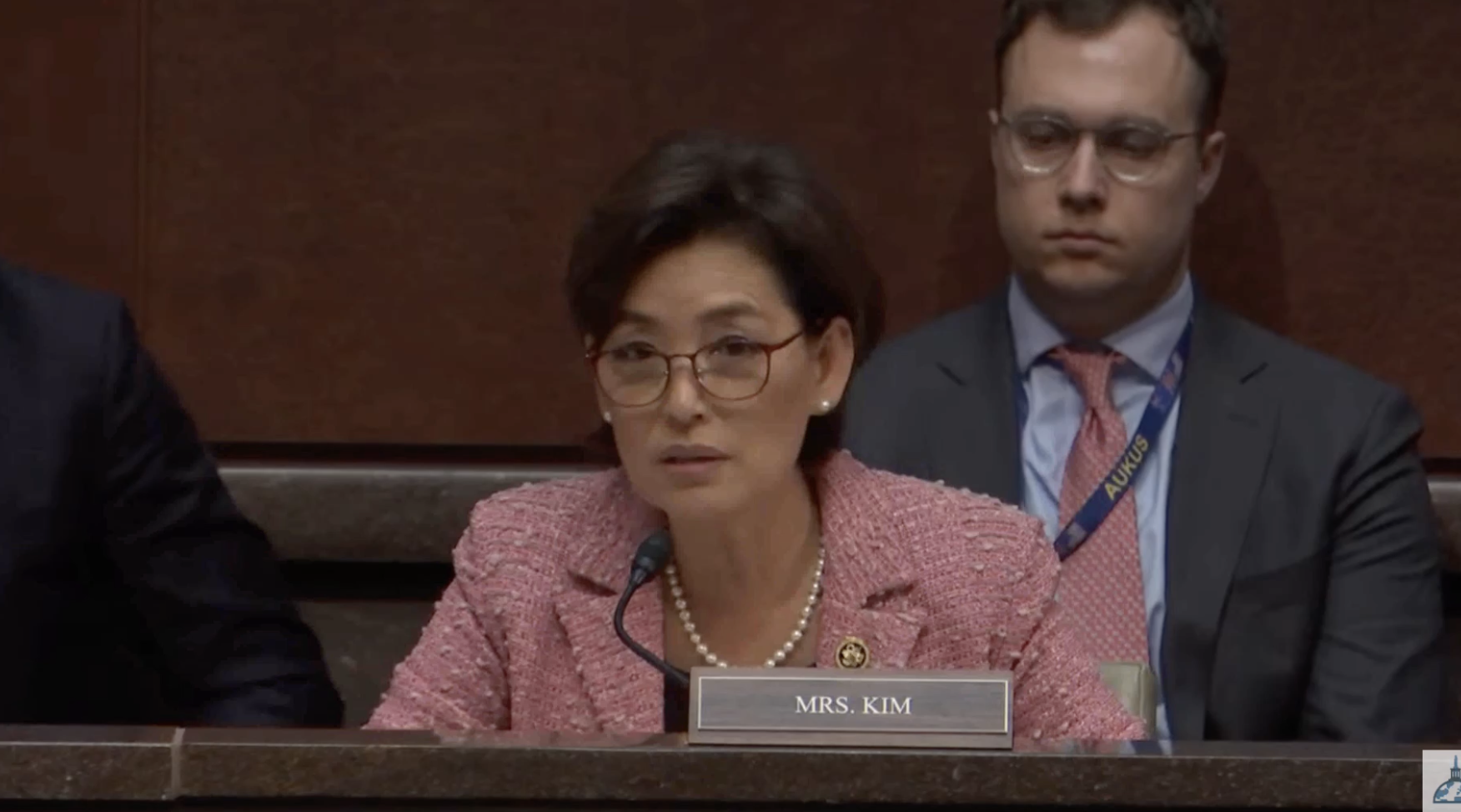Washington, DC – Today, House Indo-Pacific Subcommittee Chairwoman Young Kim (CA-40) delivered opening remarks at her subcommittee hearing titled, “Protecting Emerging Technologies for Peace and Stability in the Indo-Pacific.”
Watch her opening statement HERE and read her remarks below.
Welcome to the Indo Pacific-Subcommittee’s hearing entitled “Protecting Emerging Technologies for Peace and Stability in the Indo-Pacific.”
The Indo-Pacific region is important for U.S. technology for at least two reasons. First, Chairman Xi Jinping has made “technological superiority” a cornerstone to the Chinese Communist Party’s national and military competitiveness. In 2013, Xi said during an inspection of the Chinese Academy of Sciences that “high-end science and technology is a national weapon in modern times.” Since then, through his Military-Civil Fusion and Made-in-China 2025 programs, the CCP has aimed to “catch up and surpass” the U.S. in technological power and strengthen the People’s Liberation Army through “reform and technology.” Successive U.S. administrations have concluded that it is in the interest of our national security to impose costs and degrade certain capabilities for the Chinese Communist Party.
Second, to maintain the United States’ technological advantage, we must work with other like-minded and technologically advanced countries. Japan, South Korea, and Singapore are three of the top 10 countries in the world with this expertise. We must cooperate with these countries on research and development, manufacturing, and implementation of high-end technology. At the same time, like-minded countries need to work with us to ensure the technology we share or jointly develop do not end up in the hands of the CCP.
For example, I was proud to introduce the KOALA Act, providing a defense technology trade exemption for one of our closest allies in the region, Australia. The KOALA Act contributed significantly to the final AUKUS implementation law that passed in the fiscal year 2024 National Defense Authorization Act last Cooperation of this magnitude will help to deter the Chinese and advance our national security, but only if State implements the law correctly and provides the exemption to which the Australians are clearly eligible for.
Today’s hearing will tackle these issues. We will discuss several tools today that are vital to ensuring our collective technologies do not fall into the hands of the CCP: export controls, sanctions, and research security. We will also look at existing and proposed bilateral and pluri-lateral structures that can work together to reduce regulatory barriers to technology cooperation and to harmonize export controls. I look forward to a fruitful discussion on what more we, and our allies and partners, can do on these fronts.
In just a few days, I will be leading a bipartisan CODEL to Singapore, Malaysia, and Vietnam to discuss PRC influence in the region, South China Sea issues, and technology cooperation. In preparation for this trip, I would particularly like to hear from our witnesses what Southeast Asian countries are doing to protect critical technologies from the hands of the CCP, and where there are opportunities for more tech cooperation with these countries.
I thank our witnesses for their willingness to testify today, and I look forward to a detailed discussion about U.S. government efforts in this regard.




